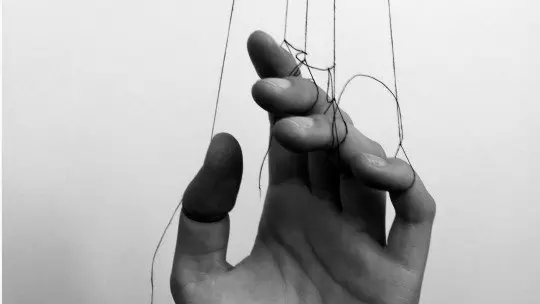
Borderline Personality Disorder (BPD) is a complex mental condition that profoundly affects the way people think, feel, and relate to others. It is essential to understand and support those living with this condition, but it is also crucial to recognize how it can manifest in manipulative behaviors. In this article, we will explore these tactics and how to address them compassionately and effectively.
Manipulation tactics in people with BPD
BPD is a condition characterized by significant emotional instability, turbulent interpersonal relationships, and a distorted self-image. People with BPD often feel an intense fear of abandonment, leading to impulsive behaviors, drastic mood swings, and difficulty regulating their emotions. These symptoms can make daily life and relationships extremely challenging.
Not all people use manipulative tactics, but some may resort to them to satisfy their emotional needs. These can be subtle and are often an expression of your deep emotional distress. Some of the most common tactics:

How to Address Manipulation Effectively
Addressing manipulation requires a compassionate and firm approach. Some strategies to handle these tactics effectively:
It is important to remember that these behaviors generally arise from deep emotional distress and are not necessarily malicious.

Real life case: Ana’s story
Ana is a 32-year-old woman who has been diagnosed with Borderline Personality Disorder. She works as a graphic designer at a small company and has struggled for years with emotional instability and complicated interpersonal relationships. Throughout her life, Ana has developed certain subtle tactics to manage her emotions and relate to others, which can be perceived as manipulative.
In her work, Ana often feels misunderstood and underestimated. When she faces constructive criticism about her performance, she tends to feel attacked and places herself in the role of victim. For example, after a meeting in which her boss pointed out some areas for improvement, Ana began telling her coworkers how she constantly feels persecuted and mistreated in the office. By presenting her difficulties in an exaggerated way, she manages to gain the sympathy and support of her colleagues, who often take her side and minimize the importance of constructive criticism.
Ana has a history of intense but brief romantic relationships. Often, when starting a new relationship, she idealizes her partner, seeing him or her as perfect and infallible. However, any hint of disapproval or indifference on the part of her partner can trigger a drastic reaction. On one occasion, Ana began dating Carlos, whom she described as the love of her life. But after a small disagreement over a weekend plan, Ana felt deeply hurt and went from idealizing Carlos to devaluing him, accusing him of not really caring about her and threatening to end the relationship.
In stressful situations or when she feels that her relationship is in danger, Ana resorts to emotional manipulation. During an argument with her friend Laura, Ana began to cry inconsolably and talk about her fear of being abandoned. Seeing Ana’s distress, Laura felt guilty and quickly moved on to her argument, promising to be more present and do everything she could to not cause Ana more pain.
How to approach these tactics in a compassionate way? At work, her boss may reinforce constructive criticism while validating Ana’s feelings, explaining that the feedback is to help her grow professionally.
In your relationship with Carlos, he might encourage open conversations about your fears and expectations. Therapy can help you develop better strategies to manage your emotions and improve your interpersonal relationships. Those who are close to Ana must also take care of their own emotional well-being.









